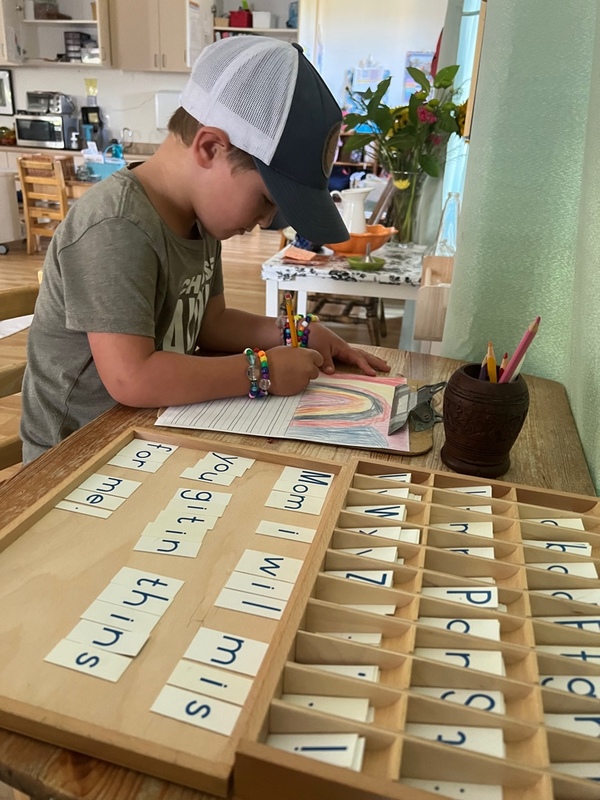(858) 759-0631
Imagination...we would be lost without it! As humans, we have used our imaginations to enrich every aspect of our lives. Men and women have imagined new ways to use modern imagination build houses, grow food, communicate with each other, fly an airplane, cure or live with disabilities and illnesses, travel, play, and so on. Imagination is something we value, promote, and encourage in our culture. But how do we support its development in our toddlers?
Montessori education is often credited with providing the kind of learning experience that leads to children with strongly developed critical thinking skills and the ability to imagine new ways of doing things. At our level, in the Toddler Community and later in Children's House (Primary), we place a lot of emphasis on exposing the children to real things, both objects and experiences. We already know that the early childhood years are a phenomenal and critical period of development. Young children have an incomparable ability to learn; their brains are wired to absorb and learn about everything they are exposed to. Having relatively few life experiences, everything is real to a young child. They assume that what they see and hear are real parts of the world. It is for this reason that the materials and experiences we offer the children are varied and rooted in reality. It is only through a strong understanding of what is real that we can imagine something different.
Modern society is quick to promote movies, TV shows, and toys that are themselves imaginary and then suggest that they will lead to greater imagination in our children. However, young children are not yet able to understand that these things aren't real. In their early stage of development, one in which they are still learning about the world, they take what they see as what must be real. This could cause an attachment to fantasy, irrational fears, or a mistrust of the world.
It is a remarkable thing to watch a young child use something real, such as kitchen tools to make food for themselves, flowers to arrange in a vase, a paintbrush with paint to explore on an easel, and then imagine how else they might be able to use those things. Either positively or negatively, I'm sure you know how much ingenuity a toddler can use when they have an image of what they want to do or create! This is true imagination—we want them to be the ones to imagine a new fanciful creature after seeing real animals or create wonderful new inventions that will make the world a better place because they had the chance to use real tools.
As you nurture your child's development, try to be aware of how much of your child's everyday experiences are fantasy and how much is reality. To explore the impact of Montessori education on creativity and foster a "Modern Imagination," you can "Google" successful, creative people who had a Montessori education. Isn't Google a great tool? I wonder what kind of education the Google inventors had?
-Ms. Cristina, Beetles Teacher

